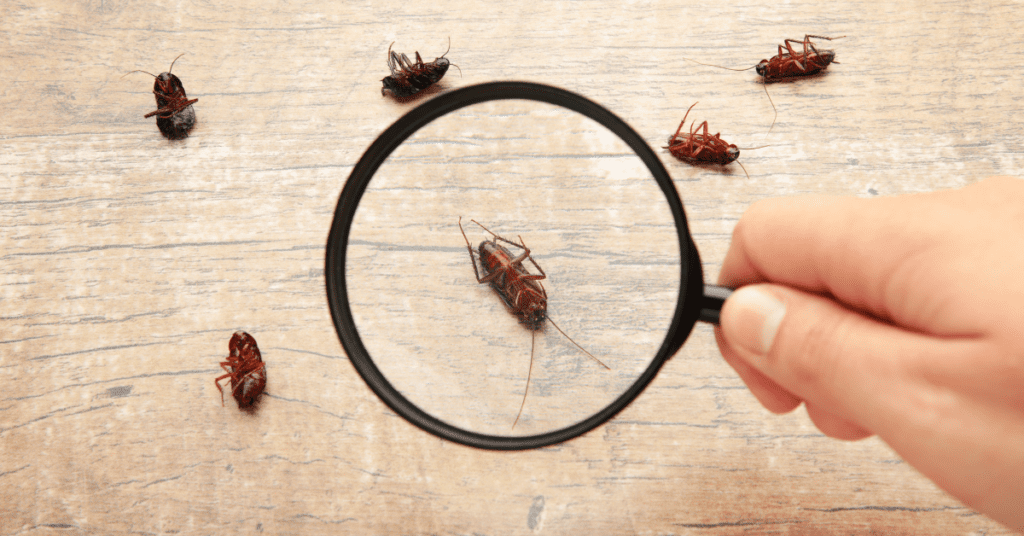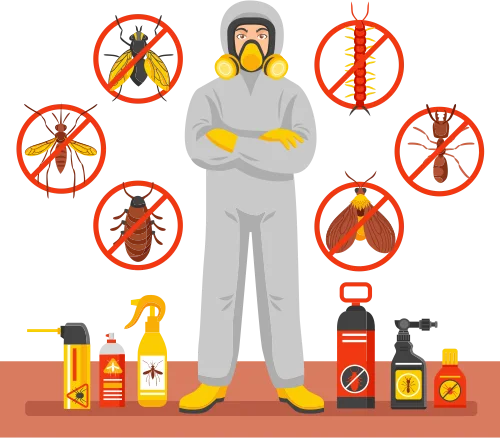Safe and Trustworthy Parasite Control for Lasting Protection
Effective pest monitoring needs a diverse approach that stabilizes environmental stability with the need for effective parasite reductions. The subtleties of these approaches may not be right away clear, triggering a closer evaluation of the methods that can lead to lasting insect control results.
Understanding Bug Control Techniques
Insect control incorporates a variety of approaches targeted at managing and removing undesirable insects and rats that can endanger both health and property. Understanding these techniques is essential for effective pest management.
The main classifications of pest control methods include mechanical, biological, and chemical methods. Mechanical techniques include physical barriers and catches to avoid parasite access and capture unwanted types. For example, utilizing screens on home windows or using sticky catches can substantially lower insect populaces without introducing unsafe compounds.

Chemical bug control is usually one of the most identified method, utilizing chemicals to get rid of parasites. These chemicals can be effective yet should be made use of with caution to stay clear of unfavorable effects on non-target species and the environment.
Advantages of Eco-Friendly Solutions
Exactly how can environment-friendly solutions change bug control practices? The fostering of eco-friendly insect control approaches uses many advantages, significantly improving the effectiveness and security of bug administration.

An additional advantage is the favorable effect on regional biodiversity. Environment-friendly services are developed to target particular insects while protecting advantageous bugs and wildlife, advertising a balanced ecosystem. This technique aligns with the growing consumer demand for lasting techniques, improving the track record of insect control carriers.
Integrated Pest Administration Methods
The execution of environment-friendly options normally causes the fostering of Integrated Bug Administration (IPM) methods, which even more boost pest control efficacy. IPM is an all natural strategy that incorporates several techniques to manage bug populations while decreasing ecological influence. This strategy emphasizes using organic, social, mechanical, and chemical controls, guaranteeing a well balanced and sustainable approach of bug management.
One fundamental facet of IPM is the thorough evaluation of pest task and ecological conditions. By keeping an eye on parasite populaces and recognizing their life cycles, specialists can apply targeted treatments that interrupt the bug's environment or lifecycle, minimizing dependence on chemical pesticides. Furthermore, cultural practices such as crop rotation and habitat control can dramatically decrease pest facility and reproduction.
An additional crucial part is using organic control agents, such as beneficial pests or bacteria, which can naturally subdue insect populations. When chemical applications are necessary, IPM focuses on the usage of low-risk chemicals and uses them precisely, decreasing direct exposure to non-target microorganisms and people.
Incorporating IPM approaches not only enhances insect control effectiveness but also promotes a safer community, lining up with the expanding need for lasting practices in parasite management.
Safe Practices for House Owners
Comprehending the relevance of secure methods in pest control can equip house owners to effectively manage pest concerns while securing their health and wellness and the environment. Implementing preventive measures and non-toxic techniques is critical in minimizing direct exposure to harmful chemicals.
Homeowners need to first analyze their atmosphere for problems that draw in pests, such as standing mess, water, and food waste. Regularly cleaning and securing entrance points can prevent bugs from invading the home. Making use of all-natural deterrents, such as vital oils or diatomaceous organic pest control companies planet, can give reliable options to chemical pesticides.
When chemical therapies are necessary, homeowners must select products that are specifically classified as secure for property use. It is important to follow application guidelines meticulously to avoid overexposure. Furthermore, using targeted treatments in locations where parasites are identified, as opposed to covering splashing, can substantially lower chemical use.
Last but not least, preserving open interaction with insect control professionals is vital. Home owners need to ask about the safety of items made use of and demand green alternatives whenever feasible. By adopting these secure practices, homeowners can develop a much healthier living setting while properly managing insect concerns.

Tips for Long-Term Defense
Establishing an insect monitoring technique that stresses long-lasting security can substantially improve the performance of the risk-free methods formerly reviewed. To accomplish this, homeowners should apply normal examinations of their residential property, concentrating on hidden locations such as attics, cellars, and crawl spaces. Early detection of insect activity is crucial in stopping infestations from taking hold.
Additionally, preserving a tidy setting is Go Here important. This includes proper food storage, without delay cleaning up spills, and regularly throwing away rubbish. These practices reduce attractants that draw parasites right into the home. In addition, sealing entrance points, such as fractures around home windows and doors, can effectively obstruct prospective parasite gain access to.
Landscaping needs to additionally be considered; keeping plants trimmed and preserving a distance between greenery and the home decreases hiding spots for bugs. Making use of all-natural deterrents, such as vital oils or diatomaceous earth, can further inhibit problems without considering rough chemicals.
Finally, working together with an expert pest control service for periodic examinations can supply an added layer of security. These specialists can provide customized referrals and advanced therapies, making sure that your home stays shielded against pests in the long term.
Final Thought
Finally, risk-free and reliable pest control requires a complex strategy that emphasizes eco-friendly methods and incorporated bug management. By carrying out all-natural deterrents, performing normal examinations, and maintaining proper sanitation, homeowner can substantially decrease parasite populations while securing beneficial pests and the setting. Collaboration with expert insect control services improves the performance of these approaches, guaranteeing customized services that give long-term protection and comfort versus future infestations.
Effective parasite monitoring go to this site needs a complex approach that balances ecological stability with the requirement for efficient bug suppression. The fostering of eco-friendly pest control techniques offers various benefits, significantly boosting the efficiency and security of bug monitoring.The execution of eco-friendly solutions naturally leads to the fostering of Integrated Pest Management (IPM) strategies, which better boost parasite control efficacy. exterminator coquitlam. By checking pest populations and recognizing their life cycles, experts can carry out targeted interventions that disrupt the parasite's environment or lifecycle, reducing reliance on chemical pesticides.In final thought, secure and dependable bug control calls for a multifaceted approach that highlights environmentally friendly approaches and integrated insect monitoring